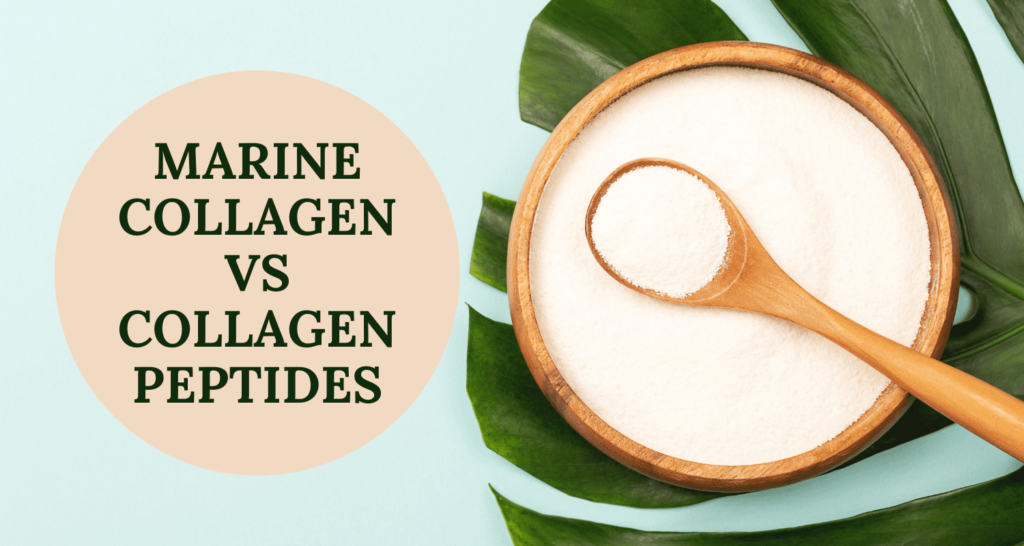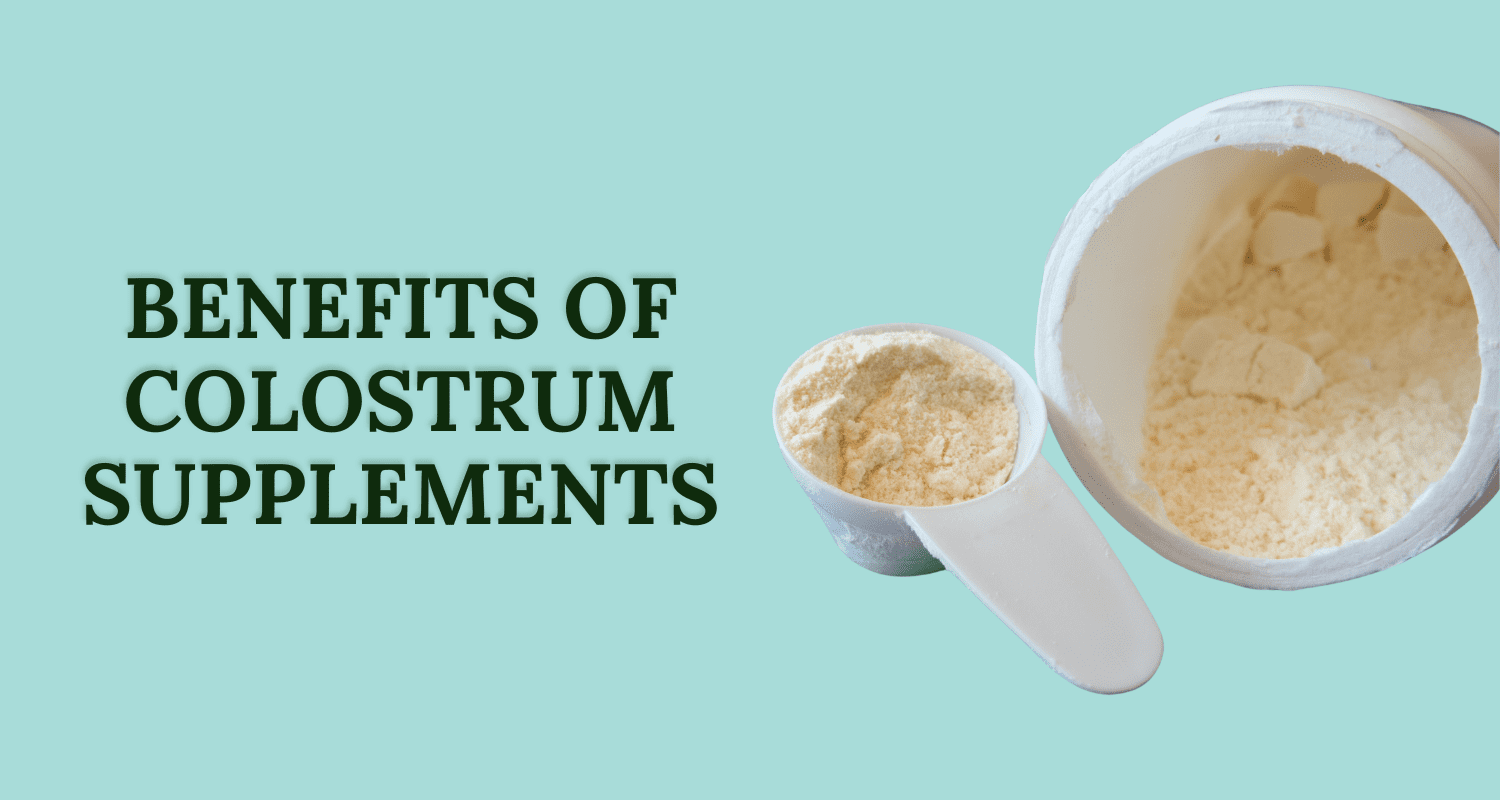Collagen is the most plentiful protein in our bodies. It builds our skin, bones, and connective tissues.
As we get older, we make less collagen. This leads to wrinkles and joint issues. Collagen supplements like marine collagen and collagen peptides can help.
In this article, we’ll explore how marine collagen vs collagen peptides differ and their benefits for our skin and joints.
Let’s delve into marine collagen vs collagen peptides.
Key Takeaways:
- Collagen is an essential protein that plays a crucial role in maintaining the skin, bones, and connective tissues.
- As we age, our collagen levels decrease, leading to issues like aging skin and joint problems.
- Collagen supplements, such as marine collagen and collagen peptides, can help address these concerns.
- Marine collagen is sourced from fish and offers high bioavailability, while collagen peptides can be derived from various sources.
- Marine collagen vs collagen peptides, both provide unique benefits for skin and joint health.
What is Collagen?
Collagen is the most abundant protein in the human body. It’s a major building block for skin, bones, and connective tissues. Collagen, made of amino acids, is vital for keeping parts of our body elastic and strong.
It helps our skin, bones, and connective tissues stay intact. Collagen ensures our skin stays supple and our joints flexible. This protein is essential for our bodies to work well.
What are Collagen Peptides?
Collagen peptides, also known as hydrolyzed collagen, are small pieces of collagen. They go through a process called hydrolysis. This makes the big collagen molecules break down into smaller pieces, called peptides.
These peptides are easier for our body to absorb. Because of this, collagen peptides are great for increasing the amount of collagen in our body. They help make new collagen and fix the old ones.
Benefits of Collagen Peptides:
- Enhanced Absorption: Their smaller size lets the body absorb collagen peptides better than whole collagen molecules.
- Tissue Repair: They aid in fixing and regrowing various body tissues like skin, bones, and tendons.
- Joint Health: Collagen peptides boost collagen creation, keeping joints healthy and moving smoothly.
- Skin Health: They help keep the skin hydrated, stretchy, and reduce signs of aging like wrinkles.
If you want better joint health, smoother skin, or stronger tissues, collagen peptides can help. They’re an easy and effective way to up your collagen and improve health.
The Benefits of Collagen Peptides
Collagen peptides help with overall health, especially for repairing tissues, supporting joints, and improving skin. They are strong amino acids that benefit the body in many ways.
Tissue Repair
For tissue repair, collagen peptides are very important. They make tendons and joint parts stronger. They also help in the healing process, supporting the recovery of damaged tissues.
Joint Support
People with joint problems can find relief using collagen peptides. These peptides lower inflammation and make joints move better.
Taking collagen peptides regularly helps ease joint pain and keeps joints healthy.
Skin Health
Collagen peptides are famous for making skin healthier. They can improve skin moisture and make it more elastic. Also, they help reduce wrinkles for younger-looking skin.
These peptides encourage the body to make more collagen. It’s essential for keeping skin tight and elastic. This new collagen makes the skin’s structure stronger and promotes younger skin.
Adding collagen peptides to your daily routine is easy. Whether you like powders, capsules, or collagen-rich foods, you can enjoy their benefits. Regular use brings many advantages of these amino acids.
Collagen peptides are great for fixing tissues, helping joints, and making skin better. They are useful for injury recovery, joint pain, or enhancing your skin. Adding collagen peptides to your health routine can help you achieve your health goals.
What is Marine Collagen?
Marine collagen comes from fish and other sea creatures. It’s popular because it’s sustainable and easy for our body to use. This makes it great for helping with skin and joints.
It’s packed with glycine, known as the “anti-aging amino.” Glycine boosts collagen creation, making skin look younger and firmer.
Marine collagen is also easier for the body to absorb because it’s lighter in weight. This means you get the most out of its benefits. It’s perfect for improving skin beauty or aiding joint health.
Marine Collagen Benefits
Marine collagen boosts overall health and well-being. It’s great for skin, joints, and muscles. Its properties are unique and helpful.
Improved Skin Elasticity
Marine collagen improves skin elasticity. Aging reduces collagen, causing wrinkles and loss of firmness. It helps by keeping skin moist and making new collagen. This makes skin look young and glow.
Joint Health
Marine collagen is good for joint health too. It repairs cartilage and lowers inflammation. This can help those with joint issues feel better. It restores joint function, lessens pain, and makes moving easier.
Muscle Growth
It also helps muscles grow. Collagen is key for strong connective tissues, like tendons and ligaments. These tissues support muscles. Marine collagen provides what’s needed for these tissues, aiding muscle growth and recovery after workouts.
Marine collagen has more benefits too. It supports a healthy gut and can make hair grow strong and shiny.
By adding marine collagen to your daily life, you can improve your skin, joints, and muscles. It makes for a healthier, more active life.
Key Differences Between Marine Collagen and Collagen Peptides
Choosing the right collagen supplement means knowing the differences between marine collagen and collagen peptides.
These two have unique sources and properties. Knowing these can help you make a better choice.
Source
Marine collagen comes from fish and marine animals, great for those who prefer marine-based products. Collagen peptides come from bovine (cow) and porcine (pig) hide. This variety offers more choices.
Bioavailability
Marine collagen is easily absorbed by the body due to its lower molecular weight. This helps the body use it effectively. Collagen peptides are also bioavailable, but this depends on their source and how they are processed.
Glycine Content
Glycine, important for collagen synthesis and skin health, is more abundant in marine collagen. It supports skin elasticity and hydration. Collagen peptides have glycine too, but in smaller amounts.
- Marine collagen – derived from fish and other marine animals
- Collagen peptides – sourced from various sources such as bovine and porcine hide
Both marine collagen and collagen peptides offer benefits for skin and joint health. The best choice depends on what you prefer, your dietary needs, and health goals. Consider their source, how well your body can use them, and their specific benefits.
Choosing the Right Collagen Supplement
Choosing between bovine and marine collagen depends on your needs. Bovine collagen, from cows, has Type I and III collagen. It’s great for skin, hair, nails, bones, and joints.
Marine collagen comes from fish and is rich in Type I collagen. It’s easily absorbed by the body. This type boosts skin elasticity, reduces wrinkles, and improves skin health.
Collagen supplements come as powder, pills, or liquids. Powder can mix into drinks, smoothies, or food. It’s a flexible choice.
Pills make taking collagen easy daily. Liquids are absorbed quickly by the body.
Think about what you need and prefer before choosing a supplement. Both bovine and marine collagen have health benefits. Pick the format that fits your life and enjoy collagen’s advantages.
How to Incorporate Collagen into Your Routine
Adding collagen to your daily life supports your skin and joints. To get the best results, know the right dosage. Also, think about what your body needs and how much you move.
Recommended Dosages
Most people should take 10 to 20 grams of collagen each day. Your age, weight, and health goals can change how much you need. Talk to a health expert to find out the best amount for you.
Collagen Powder Versatility
Collagen powder is easy to use every day. You can mix it into drinks and food.
- Coffee or Tea: Add collagen to your morning drink to start your day with a boost.
- Smoothies and Shakes: Mix collagen into smoothies or shakes for extra nutrition.
- Oatmeal and Yogurt: Include collagen in your oatmeal or yogurt for more benefits.
- Recipes: Try collagen in baked goods, soups, or sauces for more variety.
Always read the instructions on your collagen supplement’s packaging. Or visit the product’s website to learn how to use it correctly.
The Benefits of Collagen for Overall Health
Collagen is a key protein that boosts our health. It helps with joint and bone health, boosts metabolism, and strengthens the immune system. It is also vital for keeping us well as we get older by supplementing the body’s natural collagen.
1. Maintaining Joint and Bone Health
Collagen is crucial for our cartilage, keeping joints flexible and mobile. By using collagen supplements, we can keep our joints healthy.
This reduces the chance of discomfort or stiffness. Collagen also helps keep our bones strong and dense, important for our skeletal health over time.
2. Promoting a Healthy Metabolism
Rich in glycine, collagen supports our metabolism and energy. Adding collagen to our diet helps us burn food for energy efficiently. This is great for those who want to manage weight or feel more energetic.
3. Strengthening the Immune System
Collagen boosts our immune system too. It has amino acids like arginine and glutamine that support a healthy gut lining.
Since a lot of our immune system is in our gut, a strong gut barrier means better immunity.
4. Supporting Healthy Hair and Nails
Collagen also helps us look our best. Our hair and nails need collagen to grow strong and healthy. Taking collagen can make our hair and nails less brittle and encourage growth.
Using collagen supplements daily is a smart choice for health. It supports joints, boosts energy, strengthens immunity, and helps our hair and nails. Collagen offers a full package for our well-being.
Conclusion
Marine collagen vs collagen peptides, both have unique perks. Marine collagen comes from fish and is great for the skin and joints. It is easily absorbed by the body and is rich in glycine, which fights aging. On the other hand, collagen peptides come from different sources and offer flexibility.
Choosing between marine collagen vs collagen peptides depends on what you need and prefer. Some like marine collagen for its eco-friendliness and high absorption rate. Others pick collagen peptides for their wide availability and benefits in repairing tissues.
Adding collagen to your daily routine boosts well-being and combats aging. Whether you pick marine collagen or collagen peptides, both enhance skin tightness, joint health, and vitality.
Always check with a healthcare expert before adding supplements to your diet, to match your health needs and goals.
FAQs
What is the difference between marine collagen vs collagen peptides?
Marine collagen is derived from fish whereas collagen peptides can come from various sources like bovine or marine. Collagen peptides are broken down into smaller molecules for easier absorption.
Which is better collagen peptides or marine collagen?
The choice depends on individual preferences and dietary restrictions. Both are effective sources of collagen, but marine collagen might be preferable for those avoiding land-based animal products.
Which form of collagen is most effective?
The effectiveness of collagen depends on the source and processing. Both marine collagen and collagen peptides are widely used and have shown benefits for skin, joints, and overall health.
Is it better to take collagen or collagen peptides?
Collagen peptides are typically more bioavailable and easier to absorb due to their smaller molecular size compared to intact collagen. Therefore, collagen peptides may be a better choice for supplementation.
Can you take collagen peptides and marine collagen together?
Yes, you can combine different forms of collagen for a broader spectrum of benefits. Mixing collagen peptides and marine collagen can provide diverse types of collagen that support overall skin, joint, and bone health.
Disclaimer: This content, including advice, provides generic information only. It is not a substitute for a qualified medical opinion. Always consult a specialist or your doctor for more information. Nutrition Cult does not claim responsibility for this information.




